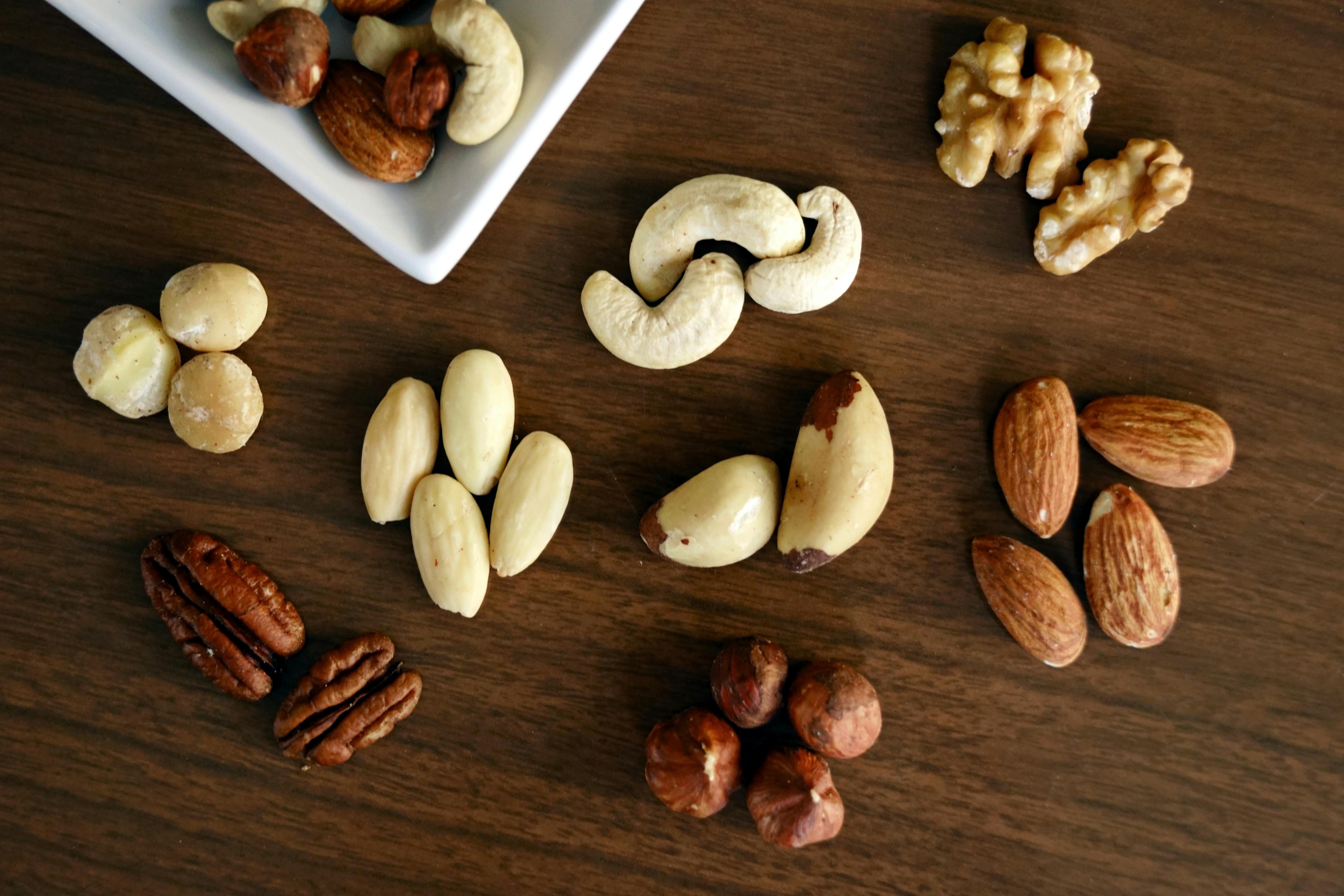Welcome to a world where the key to optimal health and wellness lies within the power of whole foods. By harnessing the incredible nutritional benefits found in fresh fruits, vegetables, whole grains, and lean proteins, you can fuel your body with the essential vitamins, minerals, and antioxidants it needs to thrive. Say goodbye to processed and refined foods, and say hello to a vibrant, energized you. Let’s explore the endless possibilities that come with embracing the abundant nutritional power of whole foods. Have you ever wondered how you can improve your health and well-being through the foods you eat? With so many conflicting messages about nutrition out there, it can be overwhelming to figure out what is truly best for your body. But fear not, because in this article, we will guide you through the world of whole foods and show you how you can harness their nutritional power to fuel your body and feel your best.
What are Whole Foods?
Whole foods are foods that are as close to their natural state as possible, meaning they have not been processed or refined. These foods are typically nutrient-dense and provide a wide range of essential vitamins, minerals, and antioxidants that are beneficial for your health. Examples of whole foods include fruits, vegetables, whole grains, nuts, seeds, and legumes.
You might be thinking, “But aren’t all fruits and vegetables whole foods?” While it is true that fruits and vegetables are generally considered whole foods, it is important to distinguish between fresh, whole foods and processed foods that contain fruits and vegetables as ingredients.
The Benefits of Eating Whole Foods
Eating a diet rich in whole foods has numerous benefits for your health and well-being. By focusing on whole foods, you can:
- Provide your body with essential vitamins and minerals
- Increase your intake of fiber, which is important for digestive health
- Reduce your consumption of added sugars, unhealthy fats, and artificial ingredients
- Support healthy weight management
- Reduce your risk of chronic diseases such as heart disease, diabetes, and certain types of cancer
The nutrients found in whole foods work together in synergy to provide optimal health benefits, something that processed foods cannot replicate. By incorporating more whole foods into your diet, you can nourish your body from the inside out and experience a renewed sense of vitality.

How to Incorporate Whole Foods Into Your Diet
Making the switch to a whole foods-based diet doesn’t have to be overwhelming. Here are some simple tips to help you incorporate more whole foods into your meals:
-
Shop the perimeter of the grocery store: This is where you will find the bulk of whole foods such as fruits, vegetables, lean proteins, and whole grains. Avoid the center aisles where processed foods are typically located.
-
Meal prep: Spend some time on the weekends preparing whole food-based meals and snacks for the week ahead. This will make it easier to make healthier choices when you are short on time.
-
Experiment with new recipes: Try new fruits, vegetables, grains, and legumes that you may not have tried before. Getting creative in the kitchen can help keep things interesting and prevent food boredom.
-
Start small: You don’t have to overhaul your entire diet all at once. Start by making small changes, such as swapping out processed snacks for whole food alternatives or adding an extra serving of vegetables to your meals.
Understanding the Nutritional Content of Whole Foods
When it comes to whole foods, it’s important to understand the nutritional content of different foods so that you can make informed choices about what you eat. Here is a breakdown of the key nutrients found in some common whole foods:
| Food | Nutrients | Benefits |
|---|---|---|
| Kale | Vitamin K, Vitamin A, Vitamin C, Calcium | Supports bone health, boosts immunity |
| Quinoa | Protein, Fiber, Iron, Magnesium | Provides a good source of plant-based protein |
| Blueberries | Antioxidants, Vitamin C, Fiber | Supports brain health, aids in digestion |
| Almonds | Vitamin E, Magnesium, Healthy Fats | Supports heart health, provides a good source of energy |
| Lentils | Protein, Fiber, Folate, Iron | Supports digestive health, provides sustained energy |
By incorporating a variety of whole foods into your diet, you can ensure that you are getting a diverse range of nutrients that are essential for overall health and well-being.

How Whole Foods Can Support Gut Health
The health of your gut plays a crucial role in your overall well-being. Your gut is home to trillions of bacteria, both good and bad, that play a key role in digestion, immunity, and even mood regulation. Eating a diet rich in whole foods can help support a healthy gut by providing the following benefits:
-
Fiber: Whole foods such as fruits, vegetables, whole grains, and legumes are rich in fiber, which acts as food for the beneficial bacteria in your gut. This helps to maintain a healthy balance of gut bacteria and supports overall digestive health.
-
Polyphenols: Found in foods like berries, nuts, and seeds, polyphenols are antioxidants that have anti-inflammatory properties. They can help reduce inflammation in the gut and support the growth of beneficial bacteria.
-
Probiotics: Foods like yogurt, kefir, and sauerkraut contain probiotics, which are beneficial bacteria that can help improve the balance of gut bacteria. By incorporating these foods into your diet, you can support gut health and improve digestion.
By prioritizing whole foods in your diet, you can nourish your gut and help maintain a healthy balance of gut bacteria, which is essential for overall health and well-being.
The Importance of Food Diversity
Incorporating a diverse range of whole foods into your diet is essential for optimal health. Each whole food contains a unique combination of nutrients that work together to support various functions in your body. By eating a wide variety of whole foods, you can ensure that you are getting all of the essential nutrients your body needs to thrive.
Benefits of Food Diversity
-
Nutrient balance: Eating a diverse range of whole foods ensures that you are getting a wide range of essential vitamins, minerals, and antioxidants.
-
Gut health: Different types of whole foods promote the growth of different types of beneficial bacteria in your gut, supporting a healthy balance of gut microbiota.
-
Reduced inflammation: Certain nutrients found in whole foods have anti-inflammatory properties that can help reduce inflammation in the body and support overall health.
-
Improved digestion: Eating a variety of whole foods can help support healthy digestion by providing a range of fiber, enzymes, and probiotics that aid in the digestive process.
By focusing on food diversity and incorporating a wide range of whole foods into your diet, you can optimize your nutrient intake and support overall health and well-being.

Common Myths About Whole Foods
With so much information available about nutrition, it’s easy to get confused about what is truly best for your health. Here are some common myths about whole foods and the truth behind them:
Myth: Whole foods are too expensive.
Truth: While some whole foods can be more expensive than processed foods, there are plenty of budget-friendly options available. Buying in-season produce, shopping at farmers’ markets, and buying in bulk can help you save money while still incorporating whole foods into your diet.
Myth: Whole foods are bland and boring.
Truth: Whole foods can be incredibly flavorful and versatile. By experimenting with different herbs, spices, and cooking methods, you can create delicious, satisfying meals that are also nutritious.
Myth: Whole foods take too long to prepare.
Truth: While some whole foods may require more preparation than processed foods, there are plenty of quick and easy recipes that use whole food ingredients. With a little planning and preparation, you can make nutritious meals in no time.
Myth: Whole foods are only for health nuts.
Truth: Whole foods are for everyone! No matter your dietary preferences or lifestyle, incorporating more whole foods into your diet can benefit your health and well-being.
By debunking these common myths about whole foods, you can feel more confident in your ability to make healthy choices that nourish your body and fuel your life.
Tips for Making Healthier Choices
Making healthier choices when it comes to food doesn’t have to be complicated. Here are some simple tips to help you make the most of the nutritional power of whole foods:
-
Read labels: When purchasing packaged foods, pay attention to the ingredients list. Choose products that contain whole, real food ingredients and avoid those with added sugars, unhealthy fats, and artificial additives.
-
Eat the rainbow: Aim to include a variety of colorful fruits and vegetables in your meals to ensure that you are getting a wide range of nutrients.
-
Limit processed foods: While it’s okay to enjoy processed foods in moderation, try to prioritize whole foods whenever possible to maximize their nutritional benefits.
-
Stay hydrated: Water is essential for overall health and well-being. Stay hydrated by drinking plenty of water throughout the day and limit sugary beverages.
-
Listen to your body: Pay attention to how different foods make you feel. If certain foods make you feel sluggish or bloated, consider reducing or eliminating them from your diet.
By following these simple tips, you can make healthier choices that prioritize whole foods and support your overall health and well-being.
Conclusion
Incorporating more whole foods into your diet is a simple and effective way to improve your health and well-being. By focusing on nutrient-dense, minimally processed foods, you can nourish your body from the inside out and experience a renewed sense of vitality. With the tips and information provided in this article, you have all the tools you need to harness the nutritional power of whole foods and fuel your body for optimal health. So go ahead and start incorporating more whole foods into your meals today – your body will thank you!
Related Content
- Cooking with Fresh Organic Whole Foods
- Organic Foods and Longevity: What Research Shows
- Mastering Complete Wellness: A Practical Guide on How To Get Complete Nutrition From Whole Foods
- Revive and Renew: How Organic Superfoods Support Detox for a Healthier You
- 10 Effective organic antioxidant foods to boost your health in 2025








